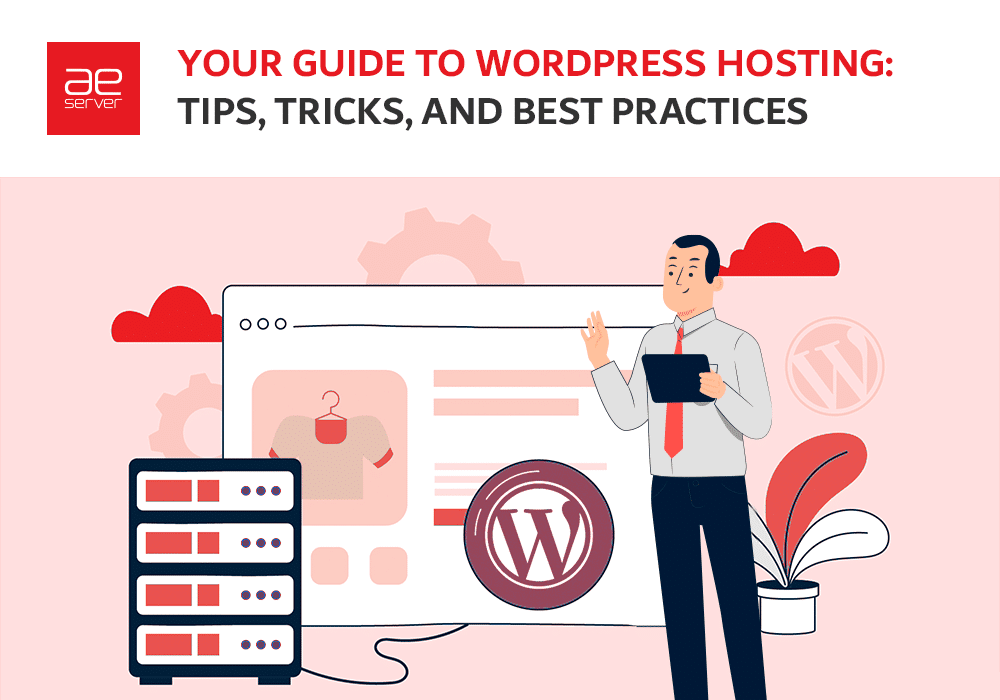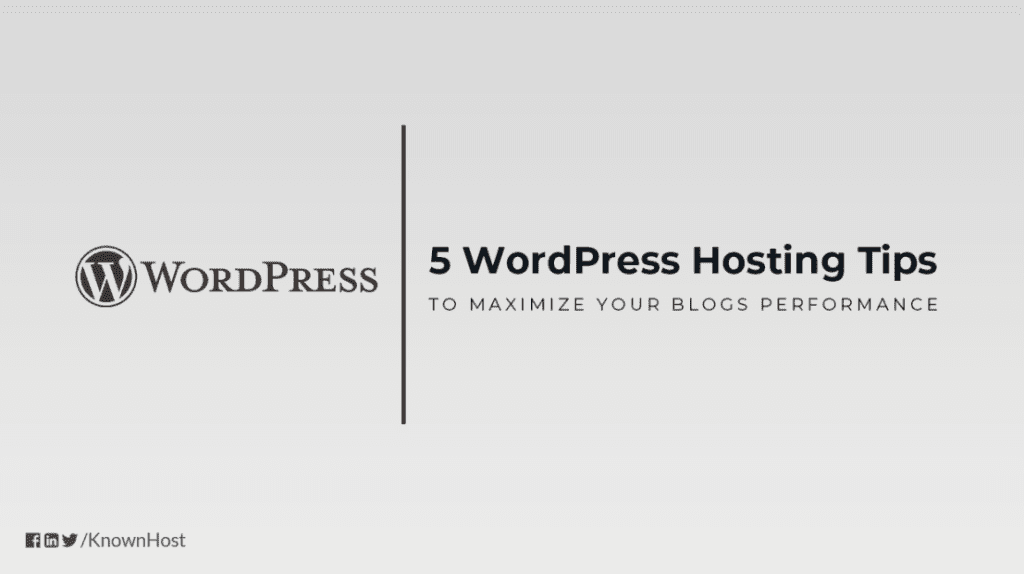When it comes to managing a client’s website, WordPress hosting tips are essential for ensuring optimal performance, security, and reliability. As a freelancer or agency, understanding the nuances of WordPress hosting can significantly impact your client website management strategy. Effective WordPress hosting best practices not only enhance website speed and security but also allow for better client communication and support. From maintaining adequate WordPress server resources to implementing robust WordPress website security measures, these tips will help you deliver exceptional service to your clients. As you continue to develop your hosting expertise, you’ll build stronger relationships and foster client trust, ultimately contributing to your business growth.
Navigating the complexities of hosting a WordPress site requires not just technical skills but also strategic foresight. Essential guidance for effectively hosting a WordPress site includes understanding client relationships, optimizing site performance, and ensuring security measures are in place. By adopting an approach that encompasses best practices for WordPress hosting, web agencies and freelancers can streamline their client management processes. With a focus on resource allocation and timely updates, your web hosting solutions can significantly improve user experience and site stability. As the landscape of website management continues to evolve, staying informed about the latest hosting strategies will be invaluable.
Choosing the Right Hosting Provider
Selecting an appropriate hosting provider is crucial in establishing a stable foundation for your clients’ WordPress websites. It’s essential to find a provider that emphasizes security and reliability, as these factors are paramount in avoiding downtime and potential data breaches. Reliable hosts will typically have robust backup and recovery processes in place, ensuring that client data remains secure in case of failures or incidents.
Another factor to consider is the technical support offered by the hosting provider. Having access to knowledgeable support can make a significant difference, especially during emergencies or technical difficulties. Opt for hosts that provide 24/7 support with multiple contact channels such as chat, email, and phone. This constant accessibility ensures that you can address any issues quickly and maintain a smooth operation for your clients’ websites.
The Importance of Site Isolation
When hosting multiple client websites, site isolation plays a vital role in maintaining security and performance. By keeping each site on a separate hosting account or server container, you significantly reduce the risk of one compromised site affecting the others. This separation not only prevents the spread of malware but also minimizes the impact of server outages, as only the affected site will go down rather than all hosted sites.
Investing in dedicated hosting options can also be beneficial for high-traffic websites. Dedicated resources ensure that a site receives the performance it needs without interference from other accounts. This strategy may incur higher costs, but the payoffs in performance and security could prove invaluable for retaining clients and ensuring their satisfaction.
Securing Your WordPress Installations
Once you’ve set up your client’s WordPress installations, the safeguards you put in place are paramount for long-term health. Ensuring file permissions are correctly configured is one of the first steps. Particularly sensitive files, like wp-config.php, should be protected against public access to thwart any potential hacking attempts. Installing well-regarded security plugins can further bolster the defenses against malicious attacks.
Implementing additional safety measures also enhances the security posture of your websites. This includes regular updates of themes and plugins, as outdated content can present vulnerabilities. Scheduling these updates and monitoring changes through activity logging plugins can help you track modifications and quickly identify unauthorized changes.
Monitoring Server Resources
An often-overlooked aspect of hosting is the need for adequate server resources to ensure smooth operation. Each client website will have its unique demands based on complexities like traffic volume and functionality. Hosts typically offer various tiers of service, and understanding your clients’ needs is key to selecting the most suitable plan. Overselling hosting can result in slow loads or even site crashes, creating frustration for both you and your clients.
Employing tools to monitor server performance is invaluable. Analytics platforms can help assess traffic and resource usage, guiding decisions about necessary upgrades or changes in hosting packages. This proactive approach not only keeps site performance at optimal levels but also demonstrates your commitment to delivering quality service to your clients.
Keeping Up with Hosting Changes
Staying informed of any updates or maintenance from your hosting provider is essential for the integrity of client sites. Hosting companies routinely implement infrastructure updates, including PHP version upgrades, which can inadvertently cause compatibility issues with themes or plugins. Monitoring these changes and understanding their implications can help you prevent site disruptions.
Setting up alerts or subscribing to your host’s newsletters can serve as handy reminders about upcoming changes. This diligence ensures that you can take preventative measures, such as updating plugins or informing clients about potential impacts. By remaining proactive, you can minimize interruptions and maintain trust with your clients.
Developing Strong Client Relationships
Hosting client websites is not solely about technical responsibilities; it also presents an opportunity to cultivate strong relationships with your clients. Regularly communicating with them about their site performance, security updates, or even just checking in can deepen their trust in your capabilities. Providing exceptional service can lead to long-term partnerships, which are invaluable for a freelancer or agency.
Furthermore, transparency about your hosting processes, including how you ensure site security and uptime, can build rapport. Clients appreciate when their developers are open about their methodologies. By demonstrating your commitment to maintaining their sites, you enrich your professional reputation and increase the likelihood of future business or referrals.
Understanding Your Client’s Needs
Every client will have unique requirements and expectations when it comes to hosting services. Engaging in thorough discussions about their goals and the specific functionalities they need can help inform your hosting decisions. For example, an eCommerce site may require a hosting environment optimized for speed and security due to sensitive transactions, while a blog might prioritize simplicity and cost.
Your ability to cater to these diverse needs showcases your versatility as a WordPress host and can effectively set you apart from competitors. Conducting a needs assessment prior to proposals can ensure transparency and align expectations, making the entire process smoother for both parties.
The Secret to Your Success
Successful WordPress hosting hinges not only on your technical configurations but also on your proactive approach. Ultimately, being a good host is about more than simply keeping the sites online. It’s essential to stay proactive in terms of security, updates, and performance monitoring. Knowing your clients well and understanding their evolving needs paves the way for long-lasting partnerships.
As you implement the aforementioned strategies, not only will you improve the performance of your client sites, but you’ll also foster trust and satisfaction. This holistic approach to hosting will ensure that both you and your clients thrive in the digital space.

Conclusion
In conclusion, hosting your client’s WordPress websites presents a unique blend of opportunities and challenges. By adopting effective strategies and best practices, freelancers and agencies can provide reliable services while ensuring the security and performance of their clients’ sites. It is crucial to maintain separation of client accounts, implement robust security measures, and monitor server resources diligently. As professionals in this domain, the responsibility also includes staying informed about hosting changes and updates. This vigilance not only protects your clients’ interests but also fortifies your reputation as a trustworthy service provider.
To summarize, here are some key takeaways for successfully hosting your client’s WordPress websites:
– Use separate hosting accounts for each client to prevent cross-contamination from security breaches.
– Implement strong security practices, such as limiting file access and installing security plugins.
– Regularly assess server resources to match the specific needs of each website.
– Stay updated on changes made by your hosting provider to avoid unexpected downtimes.
By taking these steps, you can create a resilient hosting environment that supports your clients’ needs and enhances your business model.















